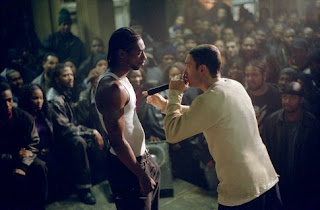Russell Peters: Stereotypes & Prejudices never been funnier!!
 When is it ok to laugh at comedy based on racial stereotypes and prejudices?
When is it ok to laugh at comedy based on racial stereotypes and prejudices?
Well, my communications textbook states that the tendency to prejudice and stereotype members of other groups is one of the main barriers to intercultural communication.
But then, where does that leave Indian Canadian comedian Russell Peters?
Being Indian, he suffered extensive abuse and vilification during his school days for being a South Indian. He was mistaken for a "Paki" and this gave him some sort of solace, which has now formed the basis of his comedy. Though his act is littered with racism, his Indian upbringing and sexism, everyone I know loves him - particularly anti-racist people of colour. Russell completes 20 years of stand up comedy this year and is bring back all his classics, just as we love them!!
In the video below Russell imbibes exactly what I wanted to talk about.
He talks about the prejudice towards the “Blacks”. Prejudices are negative social attitudes held by members of one group towards members of another. It provides a basis for discrimination. Prejudices are said to be products of in-groups, very rarely are they a result of direct contact with the out-group. Most Indian parents live by the notion of blacks being dangerous only because they have "heared" so. They hardly check the validity of this information.
Peters later talks about Indian people smelling and the prejudice towards Indian food. To me it classifies under the exaggeration cognitive bias. Just because of a few smelly Indians it doesn't mean that the whole Indian population exhibits bad odour. It just a way of showing the superiority of the “Whites”. As for Indian food you know you all love it!!!
He then goes on to talk about his name and how Indians have a “specific” stereotype when it comes to Indian names. When I first came to Singapore and introduced myself, people here found it hard to believe it was my real name just because I was “Indian” without an Indian name.
Peters also targets people from other cultures suggesting:
“Chinese people cant drive” that is another prejudice that exists, and lets face it 'we love it'.
There are also positive stereotypes that he talks about like Jewish people are stingy ans so will have enough money once they retire, Japanese are smart and Gays are good with fashion. We use them as they help us make sense of the world we live in.
This video on Arabs took me by surprise. Peters was so right when he joked about them. Most of us do associate Arabs with violence!!! I thought he was really stupid to talk about them (keeping in mind my prejudice towards them) but I later realized that through his wit he is conveying a strong message, Arabs are just like you and me. They are normal people!!
Peters’ jokes are different; if told by a white person they definately wouldn't be funny or well accepted. However, they work for every genre of audiences, because they aren’t crafted for a white audience. Peters rationalizes with people on the above prejudices hoping to reduce the cultural communication barriers they cause.






 What a week!! With Valentines' Day fast approcahing, what better topic to learn about than Communication in Relationships... In this entry, I will be discussing just that and will be referring to
What a week!! With Valentines' Day fast approcahing, what better topic to learn about than Communication in Relationships... In this entry, I will be discussing just that and will be referring to 










